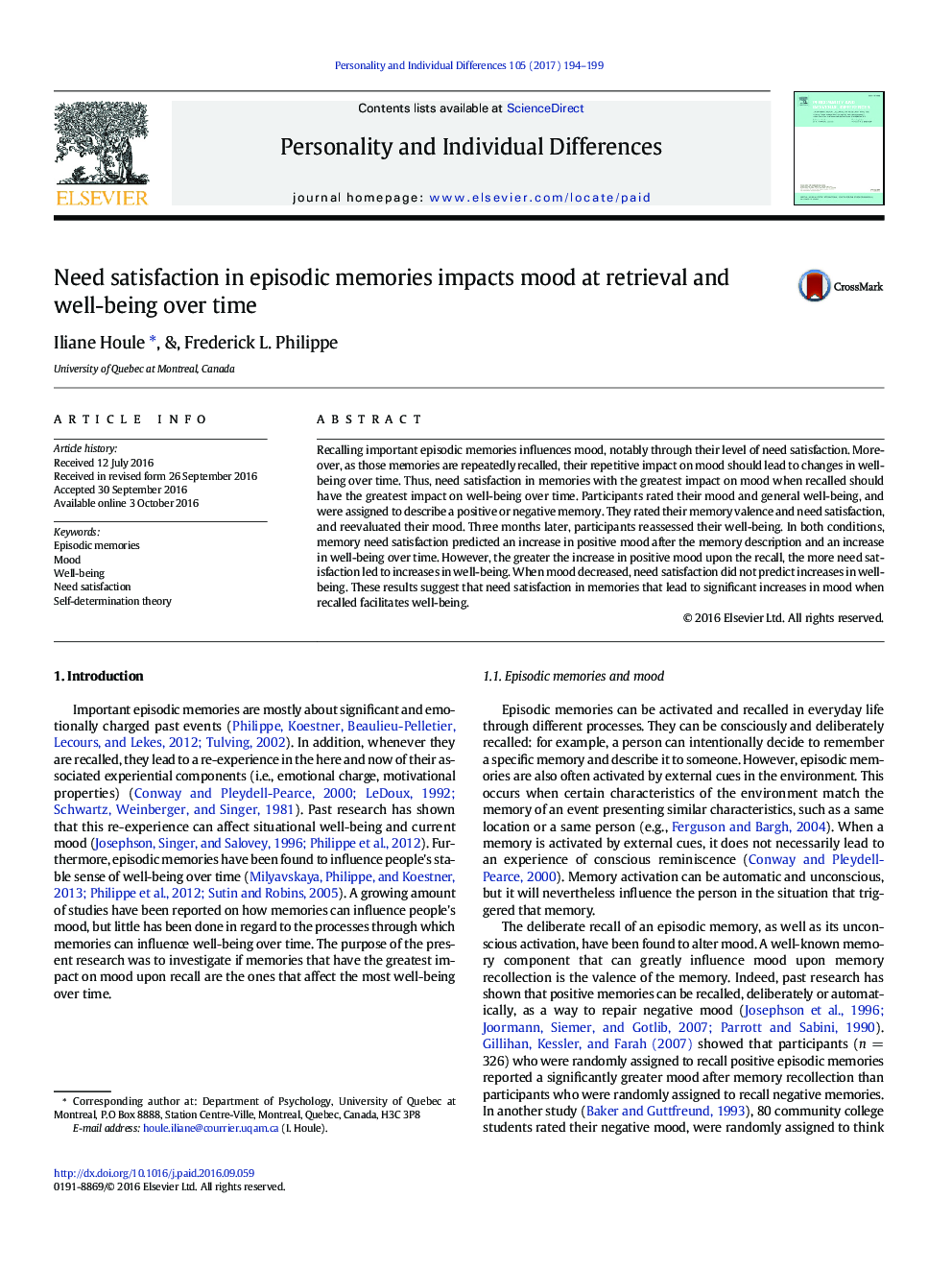| Article ID | Journal | Published Year | Pages | File Type |
|---|---|---|---|---|
| 5036047 | Personality and Individual Differences | 2017 | 6 Pages |
â¢Recalling episodic memories affects mood through their level of need satisfaction.â¢The recall of need-satisfying memories increases positive mood.â¢Need satisfaction in memories is associated with increases in well-being over time.â¢Memories that increase mood upon recall lead to greater increases in well-being.
Recalling important episodic memories influences mood, notably through their level of need satisfaction. Moreover, as those memories are repeatedly recalled, their repetitive impact on mood should lead to changes in well-being over time. Thus, need satisfaction in memories with the greatest impact on mood when recalled should have the greatest impact on well-being over time. Participants rated their mood and general well-being, and were assigned to describe a positive or negative memory. They rated their memory valence and need satisfaction, and reevaluated their mood. Three months later, participants reassessed their well-being. In both conditions, memory need satisfaction predicted an increase in positive mood after the memory description and an increase in well-being over time. However, the greater the increase in positive mood upon the recall, the more need satisfaction led to increases in well-being. When mood decreased, need satisfaction did not predict increases in well-being. These results suggest that need satisfaction in memories that lead to significant increases in mood when recalled facilitates well-being.
